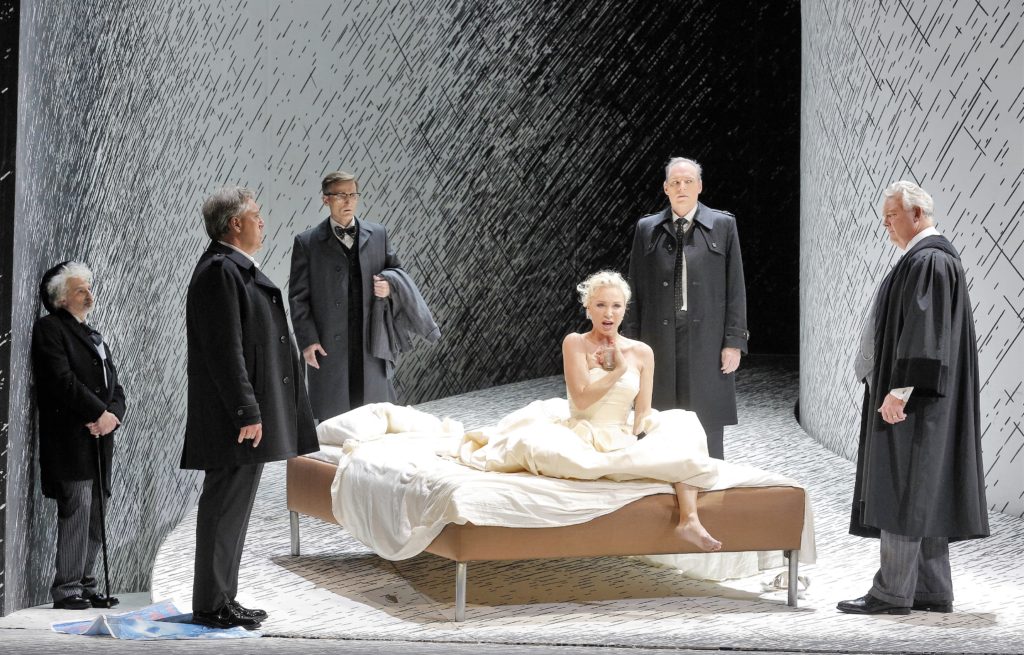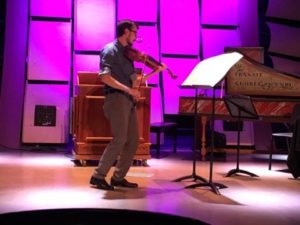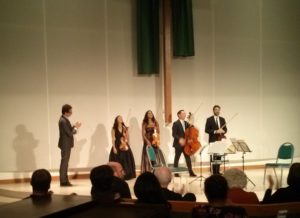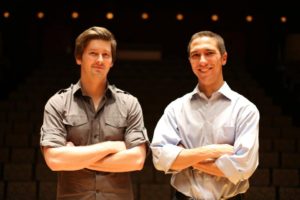 Panic Duo, consisting of violinist Pasha Tseitlin and pianist Nic Gerpe were featured in a People Inside Electronics concert on December 10, 2016 at Throop Unitarian Universalist Church in Pasadena. The event was held in the roomy church auditorium and a full size crowd braved the weekend holiday traffic to hear seven contemporary pieces, including a world premiere. With one exception, all the pieces were by Los Angeles area composers and five were in attendance.
Panic Duo, consisting of violinist Pasha Tseitlin and pianist Nic Gerpe were featured in a People Inside Electronics concert on December 10, 2016 at Throop Unitarian Universalist Church in Pasadena. The event was held in the roomy church auditorium and a full size crowd braved the weekend holiday traffic to hear seven contemporary pieces, including a world premiere. With one exception, all the pieces were by Los Angeles area composers and five were in attendance.
The first piece was The Alchemy of Everyday Things by Jason Francesco Heath, inspired by the Villa Aurora, the cultural center and artists’ residence in Pacific Palisades. This opens with lush tones from the electronics accompanied by sustained violin notes above. In a most unusual form of piano preparation, a fishing line is drawn across the piano strings and amplified, filling the performance space with the most amazingly deep and resonant sounds. The combination of the electronics, violin and piano string produce some lovely harmonies and a warm, soothing texture. There is no perceptible pulse and the piece floats dreamily along with a feeling of nostalgic introspection. About midway through, the piano is played from the keyboard and the violin becomes more restlessly active. This purposeful feel soon gives way to the slower pace of the opening while the sound of surf, wind and quiet whispering is heard from the electronics. The line is drawn once again across the piano string, restoring the mystical ambiance at the close. The Alchemy of Everyday Things is an extraordinary piece that perfectly captures the sense history present in the Villa Aurora.
Who Cares If You Listen, by John Frantzen followed, and the title was based on the famous 1958 High Fidelity magazine article written by Milton Babbitt. In his remarks prior to the performance of this piece, Frantzen explained that he was inspired by the sounds of some of the famous quotes about music, starting with Babbitt and including sayings by Busconi and Ives. Solemn electronic sounds begin the piece, soon joined by the solo violin. The pounding of construction equipment was heard through the speakers and trills in the violin introduce an element of anxiety. Faster violin runs give way to repeating passages having the same rhythm and cadence as the speaking of the phrase “Who cares if you listen.” This was reminiscent of the vocal patterns heard in Steve Reich’s string quartet Different Trains, but in this case no recorded voices were heard. The Busconi quotation was less concise and illustrated with rapid violin phrases – precisely played by Pasha Tseitlin – along with a dance-like pizzicato section. The final quotation came from Charles Ives: “Why can’t you stand up before fine strong music like this and use your ears like a man?”, apparently in response to a heckler at a concert he was attending. This was accompanied by increasing volume in the electronics and a much faster tempo for the violin, resulting in a dramatic finish. Who Cares If You Listen is an artful blend of electronics, masterful violin playing and the sounds of speech patterns that combine to produce an intriguing extension of the sentiments expressed in the underlying quotations.

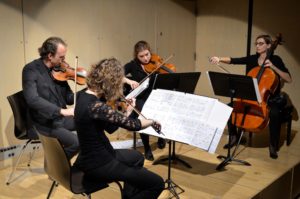
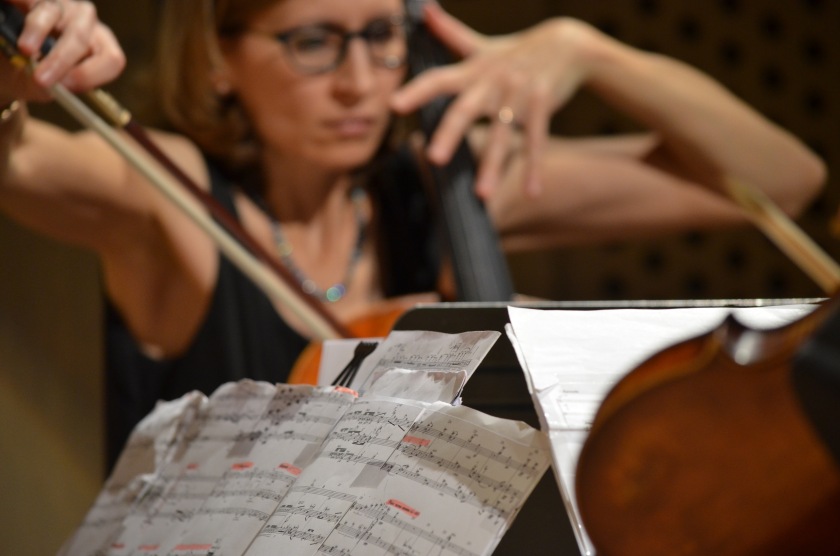
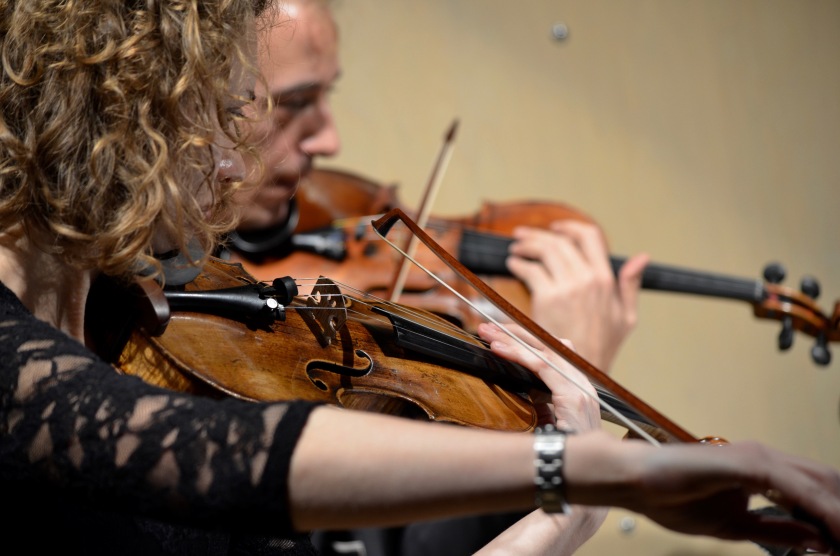
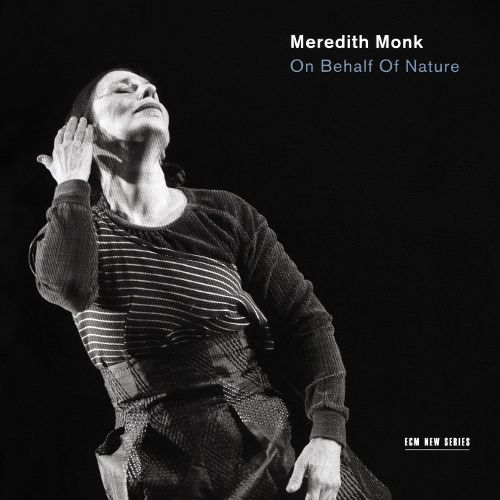
 Boston Conservatory at Berklee – recognized for offering one of the best opera programs in the U.S. – is launching a summer program at Berklee’s campus in Valencia, Spain for students from all over the world looking to pursue a career in opera. The Boston Conservatory Opera Intensive at Valencia is a comprehensive three-week program taking place June 25-July 15, 2017. This is the first program to be developed jointly between the Valencia campus since the merger between Berklee and the Conservatory in June 2016.
Boston Conservatory at Berklee – recognized for offering one of the best opera programs in the U.S. – is launching a summer program at Berklee’s campus in Valencia, Spain for students from all over the world looking to pursue a career in opera. The Boston Conservatory Opera Intensive at Valencia is a comprehensive three-week program taking place June 25-July 15, 2017. This is the first program to be developed jointly between the Valencia campus since the merger between Berklee and the Conservatory in June 2016.
